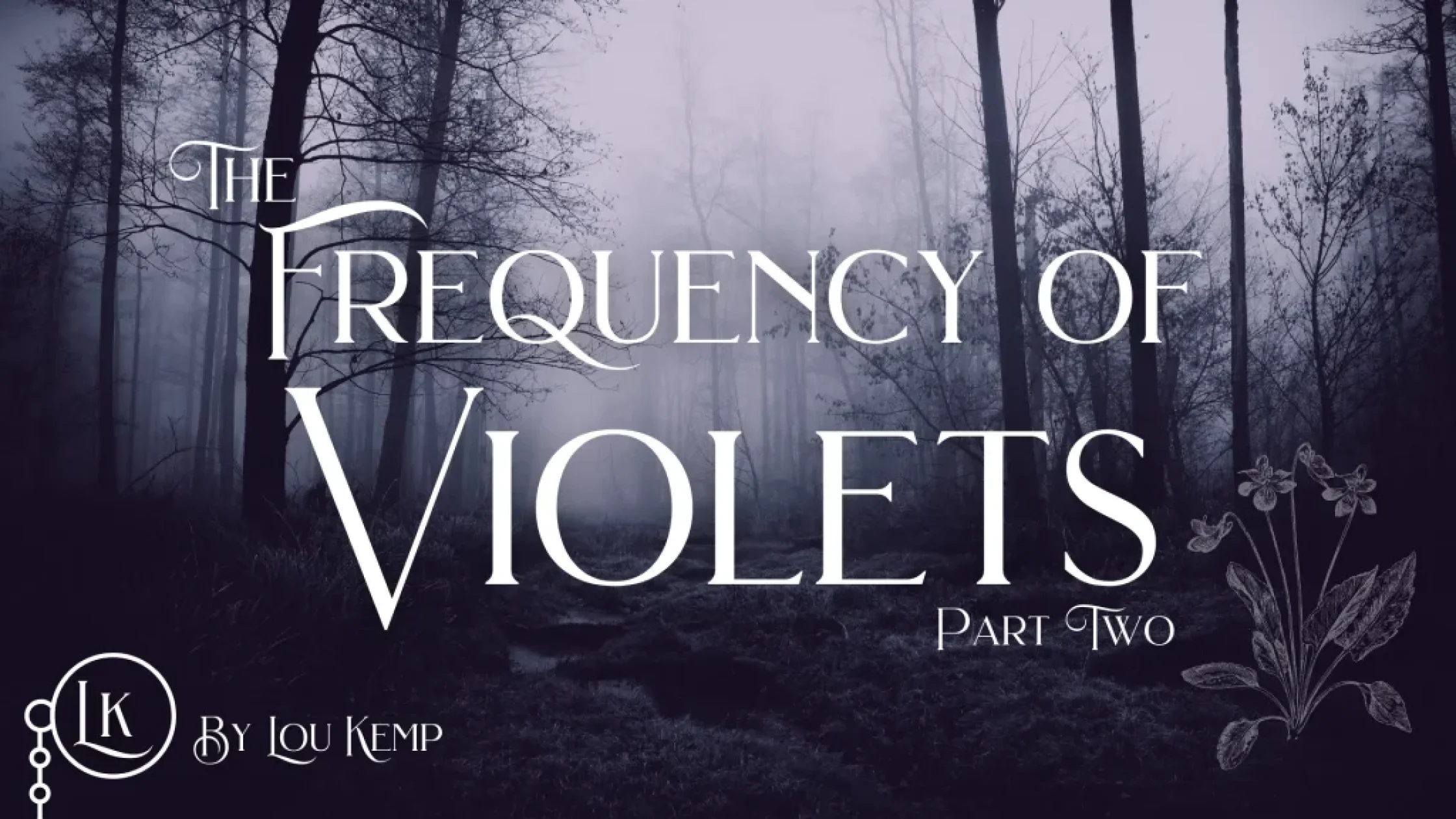The Frequency of Violets Part Two
Originally appearing in an anthology called Monsters of Memphis (1997) Lou Kemp is taking us on a journey back to France in 1944. Following Finian who is a medic haunted by a chilling gift—he can see the shadows of death before it strikes. As the horrors of battle unfold around him, he’s drawn into a mystery deeper than the blood-soaked trenches. When a young girl’s brutal murder unveils a web of betrayal and desperation, Finian must confront the true cost of life and death in a world where every moment teeters on the edge of oblivion. The Frequency of Violets is a haunting tale of war, loss, and the fragile hope that endures.
The Frequency of Violets Part Two
If you haven’t read part one yet, please go back and do so as part two builds upon the story.
###
Two days more, and Intelligence had pinpointed the advancing Nazis. As dusk bled like blood through dirty cloth, Finian and the rest of the company peered from the trenches ringing the fields. As a morbid prelude to a surreal play, the ground trembled with the advancing tanks, and the first wave of Nazis poured out of the forest.
###
Bandages, blood, and screams didn’t mean anything anymore. To Finian, the bodies in the trenches looked like sausages in red gravy. Hours of grenades, explosions, and the staccato spit of the rifles intensified as the shadows multiplied. For the first time, he wondered if the company would survive.
Finian felt the hair on his neck prickle and then he was running toward the abbey,
the smell of violets growing stronger. Pervasive.
“Emily!” He called her name and pried open the doors of the abbey, peering into the dark.
The foyer was a mountain of rubble. In the furthest corner, the glow of a single candle wavered, guttering as if life ebbed under water. Finian climbed over the last of the debris in time to see Emily’s father lay her body before the pulpit.
Her throat dripped crimson. Only feet away, her pale image hovered above the pipes of the pump organ that reached for the rafters.
“Emily!”
As Finian knelt beside the body and smoothed her brow, the mayor of St. Marie backed away. The heavily accented words of her father seemed to come from far away.
“It does not matter what you see or what you do. The Nazis will kill you. They will not believe anything you say.”
The man spoke without remorse. With dedication.
“Emily’s mother couldn’t forgive you.” Finian said. “You informed on the village.”
The hum of the planes drew close, vibrated the air, and the first bomb floodlit the night, staggering them where they stood.
“Perhaps, Monsieur. Does it matter?”
With those words, Finian saw it did matter. Life mattered, as much as death.
Like a flood from a burst damn, he could taste every drop of rain, drink in each ray of the sun, weep over each tear and every death. Finian remembered the wariness and futility in Emily’s eyes as the bones in the mayor’s neck snapped under his fingers, and the last breath hissed from his lips.
The battle raged as Finian stumbled outside to stand before the field of violets that shimmered over the dead and dying.
Walking and never stopping, through the motherless cold, he carried a backpack of sorrows and a cane of bleached bone.
